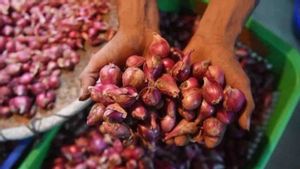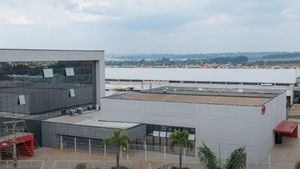JAKARTA - The government through the Ministry of Finance (Kemenkeu) stated that the COVID-19 pandemic crisis that took place some time ago has brought valuable lessons to continue to strengthen central and regional synergies in decision making.
Deputy Minister of Finance (Suahasil Nazara) said the synergy needs to be accompanied by a green economy development framework to overcome the challenges of the pandemic and the dynamics that will occur next.
"Indonesia's success in handling the pandemic does not only come from the speed and accuracy of the response to the pandemic at the national level, but is also the result of the hard work and synergy of the community, leaders, and regional leaders who are directly involved in efforts to deal with the crisis," he said in a press statement on Thursday, December 8.
Suahasil added, related to the government's green economy framework, it will focus on low-carbon development, as well as sustainable development and financing.
"Indonesia has a large enough opportunity to encourage a green economy, such as for example new and renewable energy which is projected to produce more than 60 percent of energy plants by 2060," he said.
According to Suahasil, there is a great opportunity to increase the added value of nickel's natural resources in the country to become batteries, considering that Indonesia is the country with the largest nickel reserves in the world.
"Fiscal reform needs to be strengthened to sharpen priorities in supporting the development of a green economy," he said.
Suahasil also conveyed that if data availability, accountability, and fiscal discipline are needed, especially to face future crisis challenges. Specifically, he said fiscal policies could work effectively if there was adequate fiscal space.
"At the same time, the government also realizes that structural reforms must continue. Various reform efforts continue through the implementation of the Job Creation Law, tax reforms, transfer policy reforms to the regions and reforms in the financial sector," he concluded.
The English, Chinese, Japanese, Arabic, and French versions are automatically generated by the AI. So there may still be inaccuracies in translating, please always see Indonesian as our main language. (system supported by DigitalSiber.id)









